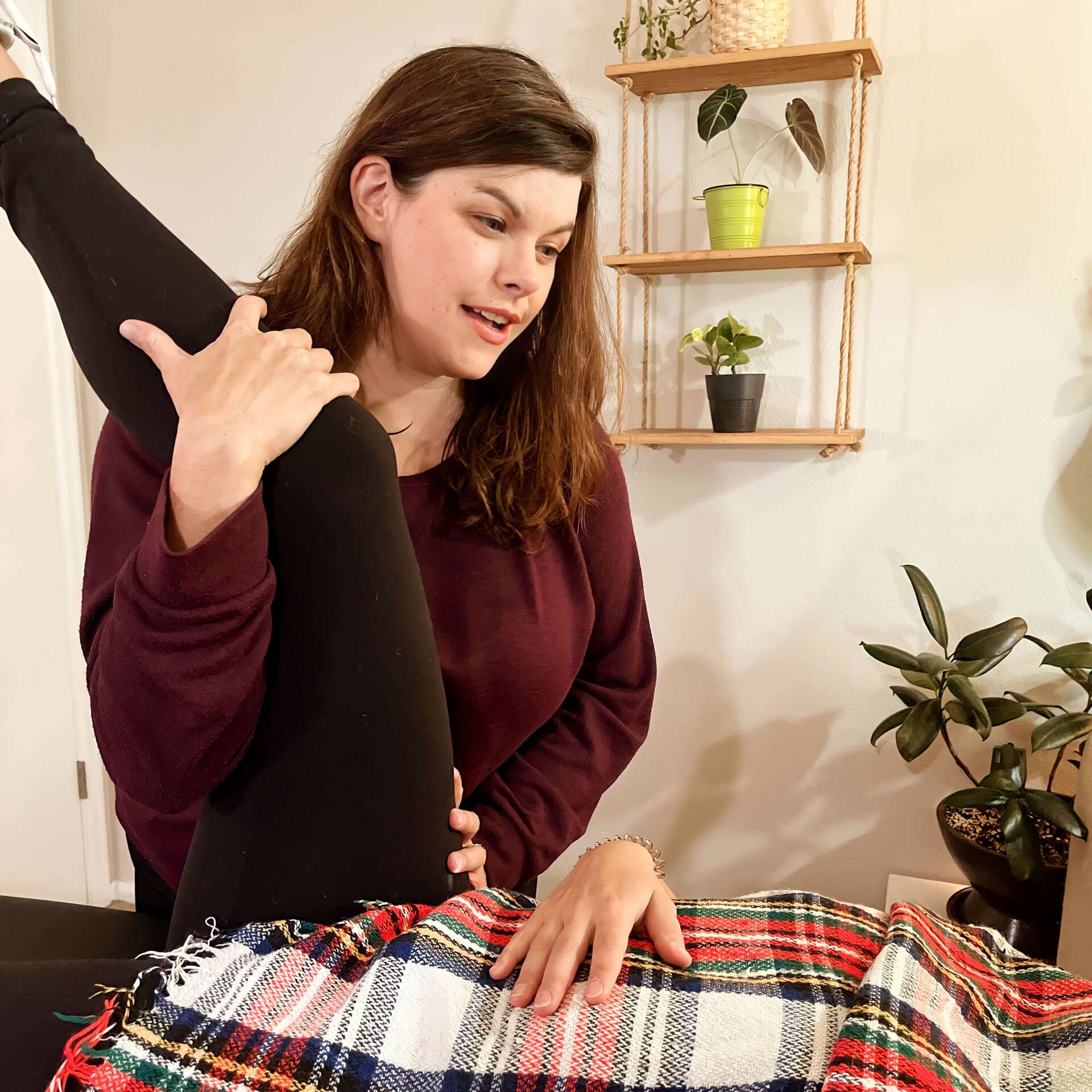We were lucky to catch up with Kate Weed recently and have shared our conversation below.
Hi Kate, thanks for joining us today. Can you share a story with us from back when you were an intern or apprentice? Maybe it’s a story that illustrates an important lesson you learned or maybe it’s a just a story that makes you laugh (or cry)?
Each student physical therapist is required to participate in multiple clinical experiences under the supervision of a clinical instructor. We learn to treat patients in real time, determining their impairments and a treatment plan, while our instructors observe and guide us.
My first full time clinical rotation took place in May of 2020, which was a strange and difficult time to begin working in healthcare. Many of the hospitals and clinics stopped accepting students due to COVID and so many students were left without a place to go. The hospital that I was going to work for in pelvic health was one of the ones that shut down. One of my professors knew someone working in private practice that might be willing to accept me, so another classmate and I were fortunate to work in a small clinic, but treating in a VERY different way than what we were used to. The clinic we worked at treated patients, primarily men, for pelvic floor dysfunction. We’d only ever learned how to help women with pelvic floor issues, so we were thrust into a world where we learned about erectile dysfunction, penile pain, prostate issues, and bowel issues. We learned in real time how to speak with men at their most vulnerable and figure out how to help them, all while learning how to avoid kink-shaming, making assumptions about sexual preferences or anatomy, and how to comfortably instruct folks in what an internal examination would entail. In short, we found out that very little of the training we did in grad school would help us treat folks with these sorts of problems.
Grad school takes students and pushes us, molds and polishes us until we fit their image of what a professional should look like. We learn to think critically (and quickly!) about how we can best solve problems and synthesize information to give our best effort. Clinical experience reminds us that we’re humans trying to help other humans, and that no amount of learning can substitute for creating a safe space where folks can feel heard in order to heal. I learned how to be the version of myself that could best help others, and to take risks, thanks to my clinical experiences. While I was definitely at least a little bit uncomfortable every day, I reflect back on that experience often as a reminder that I can indeed rise to any challenge. And it was a great opportunity to practice my poker face whenever a patient said something that shocked me!
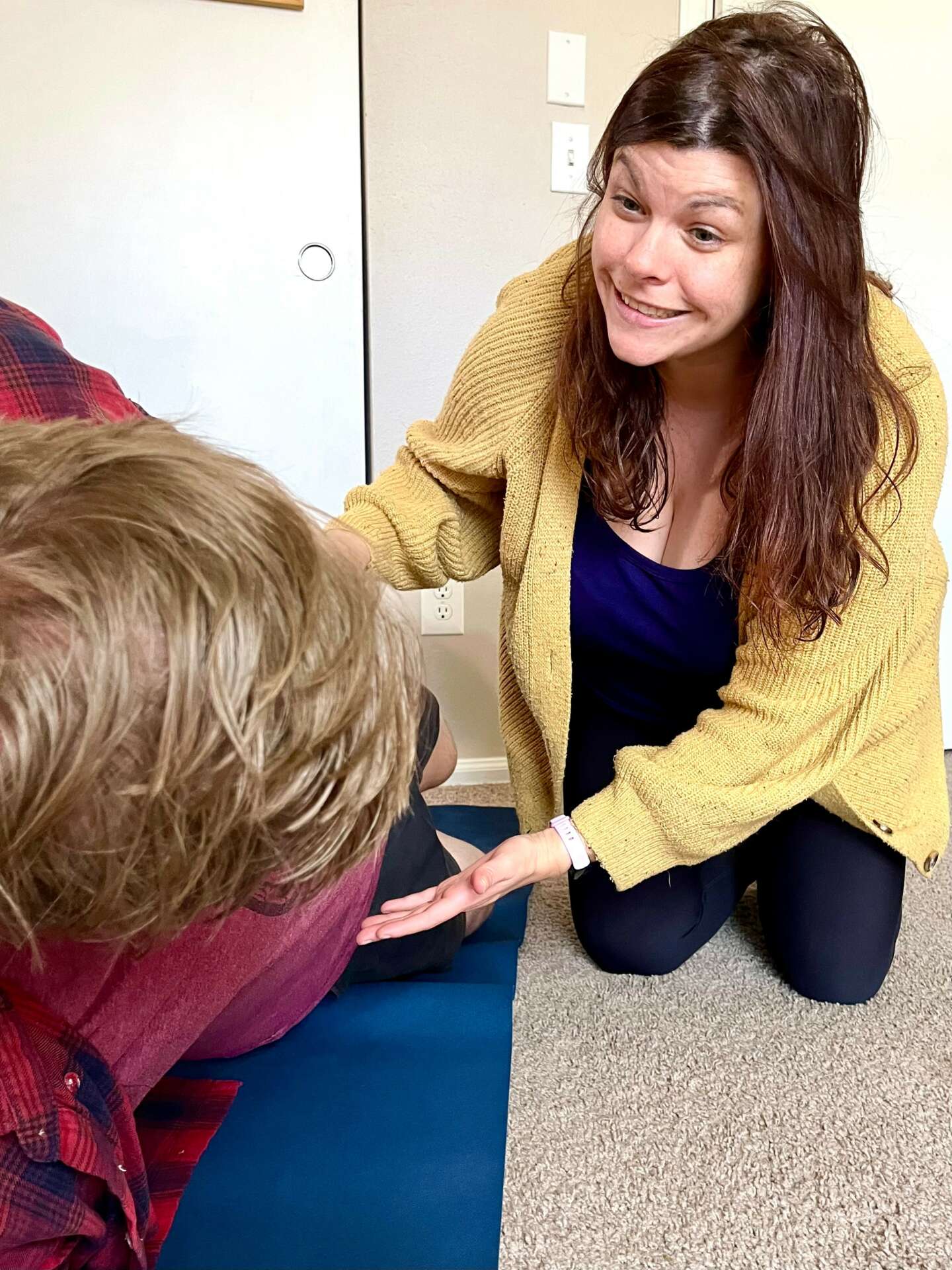
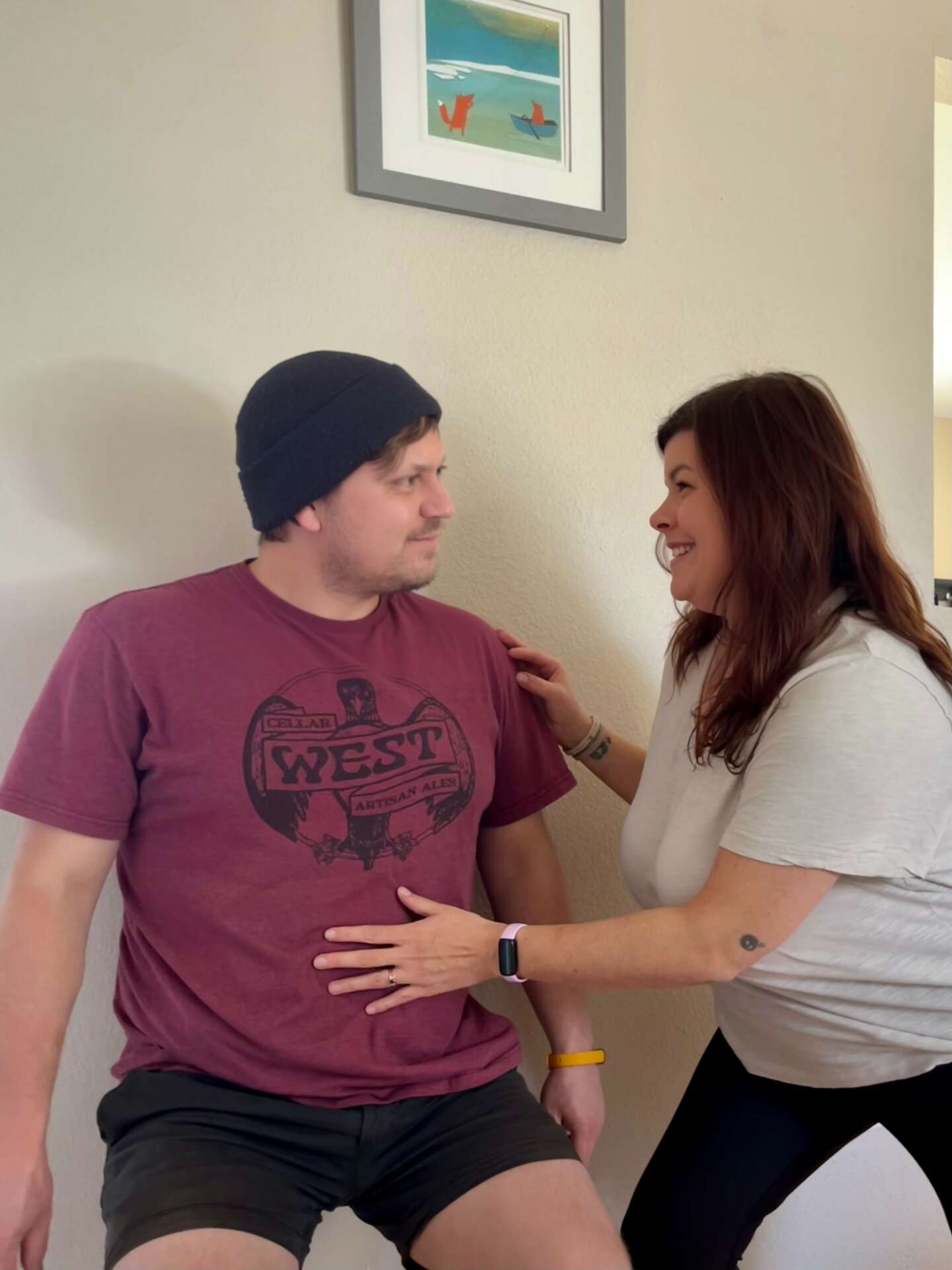
Awesome – so before we get into the rest of our questions, can you briefly introduce yourself to our readers.
I am a physical therapist who works in pelvic health. This means I use my knowledge of the human body to help folks stop peeing their pants or dealing with pelvic pain (like sitting pain or pain with sex). I also help with a host of other issues, like managing pregnancy, constipation, joint pain, or recovering from pelvic or abdominal surgeries.
Before I became a physical therapist, I spent years working in politics and in the service industry. I’ve been helping people for my entire adult life in a variety of ways, whether I was raising awareness of a local issue or helping a customer find their perfect beer. What brought me to the PT world was an unfortunate series of injuries that led me to having 7 different knee surgeries, with each surgery requiring about a year of recovery and physical therapy to build strength and confidence. After my last injury, I was unable to work for a prolonged period and figured, ‘hey, if I’m going to be out of work for a long time anyway, I might as well go back to school.’ So, I took my pre-requisite courses for PT school at a local community college. (Shoutout to CCAC in Pittsburgh, PA, where some of the finest educators and mentors helped me hobble to my classes in the snow, got me extra chairs and ice packs for my massive knee brace, and encouraged me in all that I did). I managed to excel in my courses and got into a Very Fancy Program. I also thank the folks at the University of Delaware for stuffing me full of more knowledge than I thought was possible, and for helping me to realize that having the ability to listen, empathize, and generally give a damn about patients was more than just a soft skill, but rather a critical and oft-overlooked component of becoming an excellent clinician.
I knew early on when I began training in physical therapy that pelvic health was something I felt passionate about because I saw what an opportunity there was to help folks at their most vulnerable, to teach folks how to trust their bodies again, and to recovery from illness or injury that could be devastating.
Today at Internal Locus I work with clients in their homes or by telehealth, and I help folks return to the things they love, whether that’s chasing after their kids without fear or leaking, sharing intimacy with a loved one, or returning to high level sports, like marathons, skiing the Rockies, or powerlifting!
My work feels incredibly meaningful to me, and I believe that what sets me apart as a PT is my approach towards patients. I like to meet patients where they’re at, rather than where I think they should be. I build my relationships with every single patient on the foundations of trust, mutual respect, and working together towards meaningful goals.
I believe that my role as a pelvic PT is first and foremost as an educator. People are, generally, smart about their bodies and capable of learning the tools that will best serve them. But as a society, we are so under-informed on what our pelvic floors are, what they can do, and how to tell when they’re not functioning properly. I often tell my patients that while they might forget the nuances of certain exercises or treatments, the knowledge that they’ve gained about their bodies can never be taken away from them. I think of it as igniting tiny fires of knowledge that will eventually spread to lead to a better world where people are able to advocate for themselves in an increasingly expensive, fraught, and unfriendly healthcare system, to figure out when something is wrong, and how to seek the right kind of help.
My life’s mission is to advocate for the belief that movement is a fundamental right for those who have the ability, and to assist them in achieving greater accessibility to it.

Training and knowledge matter of course, but beyond that what do you think matters most in terms of succeeding in your field?
I believe that the ability to empathize and truly hear what people are telling you is the most important characteristic of working as a physical therapist. You can have all the clinical skills in the world, but if you’re unable to figure out what matters to your patients and how to gain their trust, you’ll have a difficult time getting folks to believe in your work, especially when you’re helping patients to make significant changes in their lives.
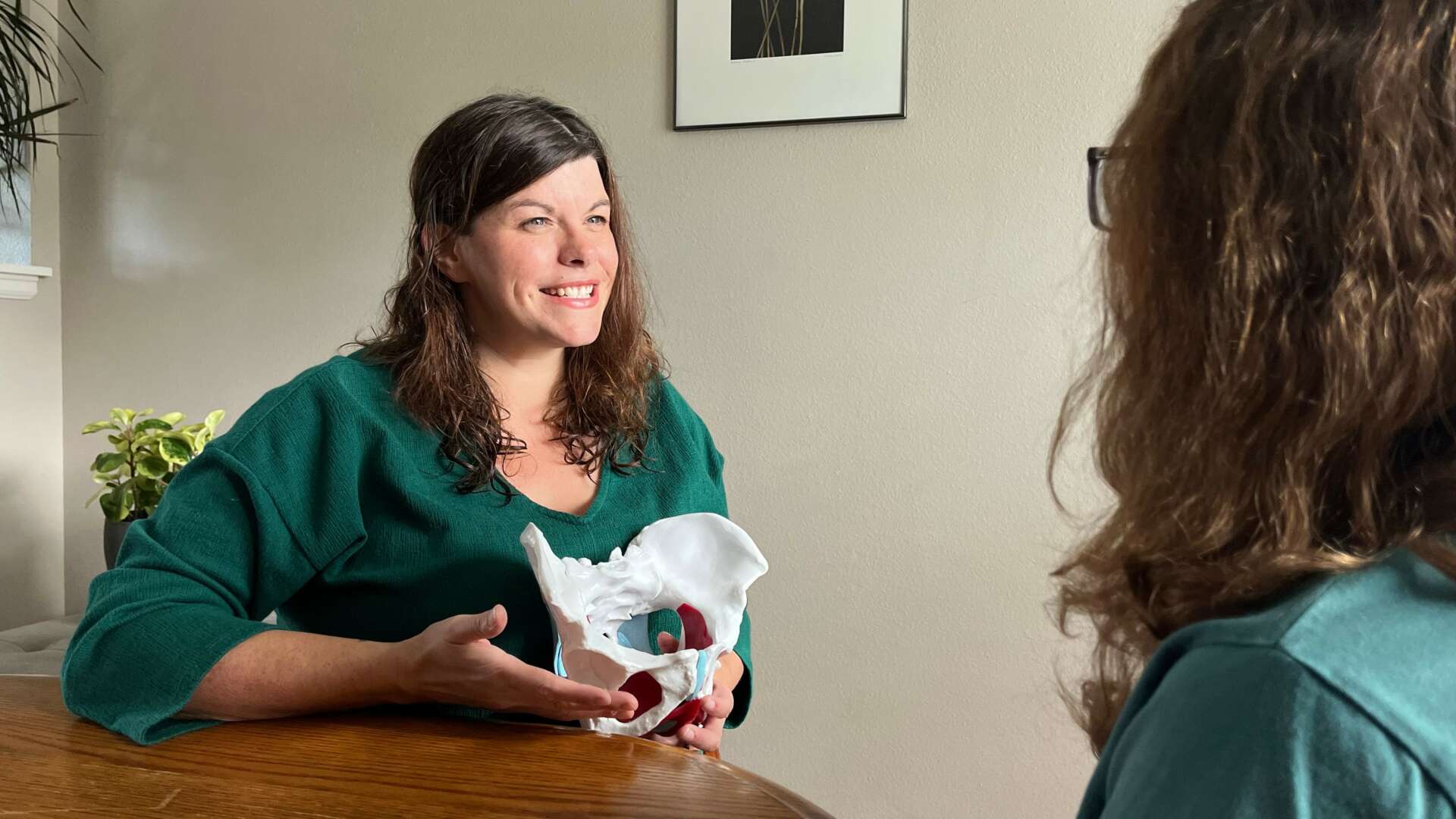
Any stories or insights that might help us understand how you’ve built such a strong reputation?
I pride myself on always acting with integrity. I’m not afraid to tell my patients that I don’t have all the answers, or to tell them that I can’t say for certain when they’ll get better. I’m also not afraid to tell patients when I think they need more help than what I can give. I believe that empowering patients to make informed decisions about their health ultimately fosters improved care for them. Most of my patients come to me through word of mouth, and I’ll often go through waves of working with groups of friends or family members. I’ve had some patients come to see me just because they want to hear what all of the fuss is about!
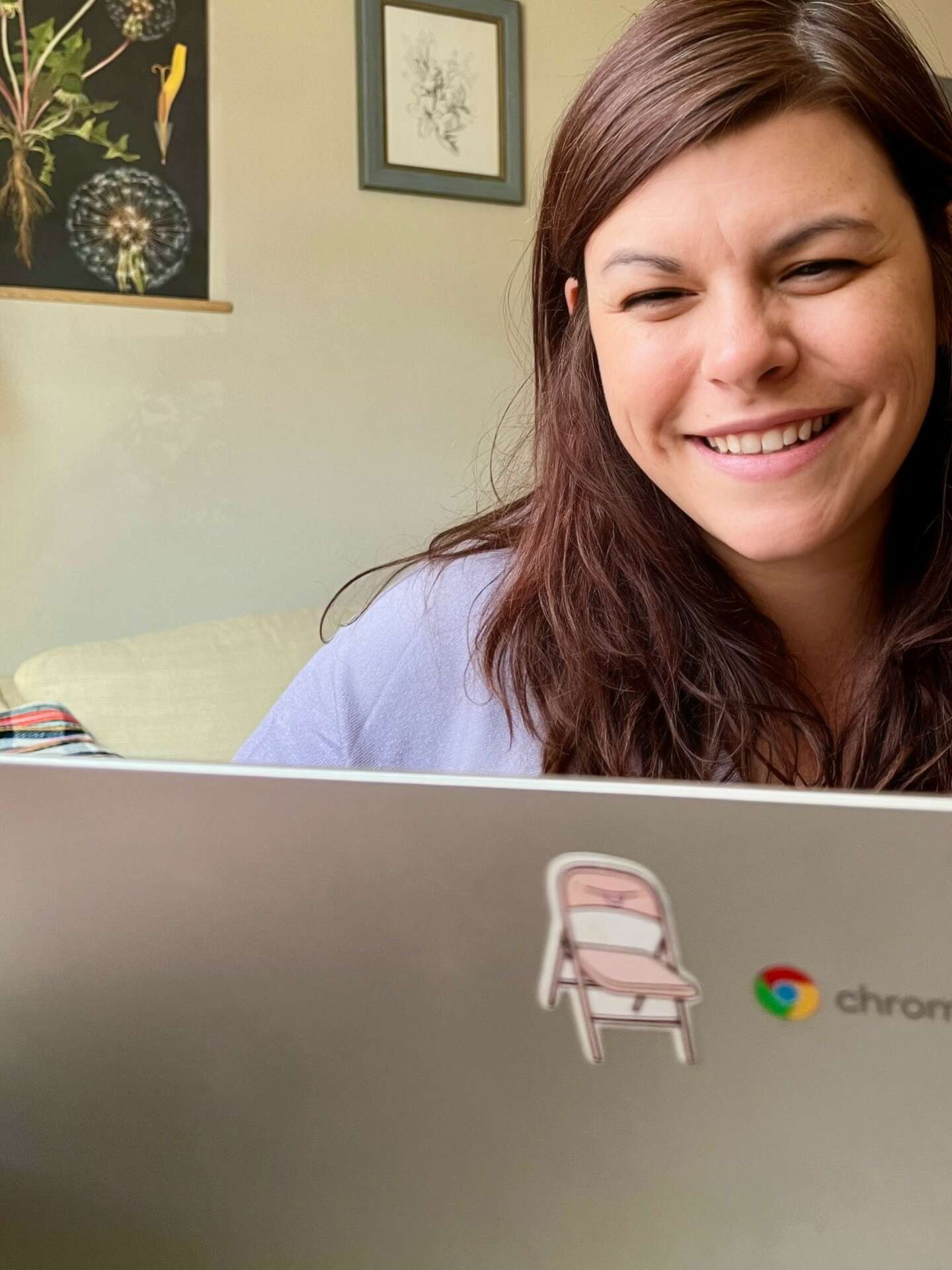
Contact Info:
- Website: http://www.internallocuspt.com
- Instagram: @internallocuspt
- Facebook: https://www.facebook.com/profile.php?id=61550342077831
- Linkedin: https://www.linkedin.com/in/kate-weed-40b0394/
Image Credits
Eric Eckhart Kate Weed


